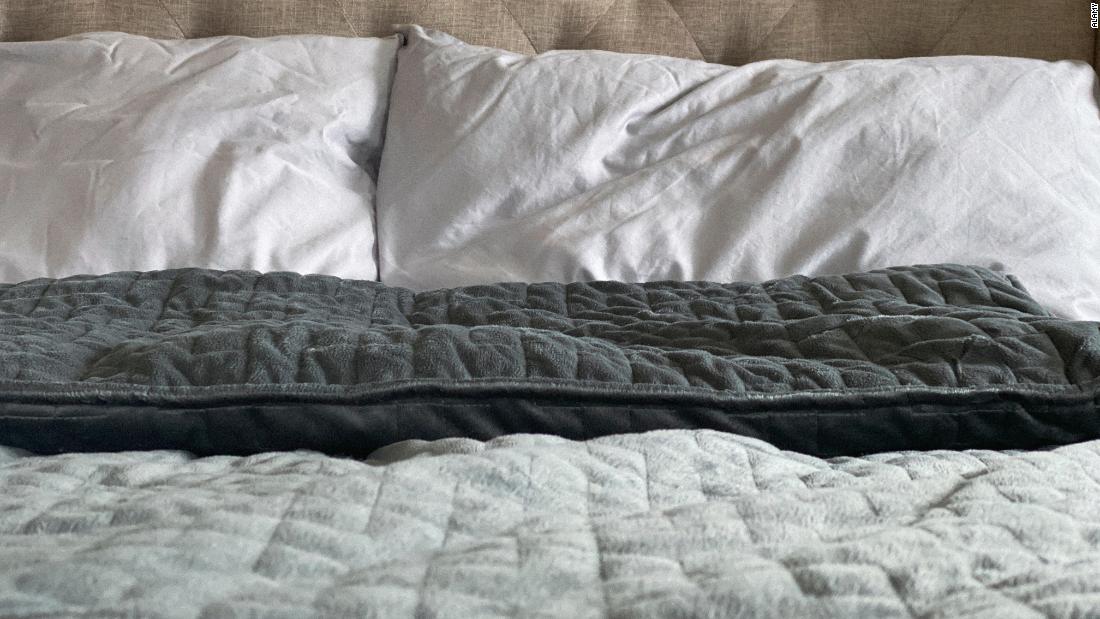Have you ever wondered if snuggling under a weighted blanket might leave you feeling a bit sore in the morning? This cozy essential, heralded for its soothing properties, has surged in popularity in recent years, especially among those seeking relief from anxiety and improved sleep. However, as we delve deeper, let’s ponder the question: could immersing ourselves in these heavy roosts lead to unexpected muscle stiffness or soreness?
The weighted blanket phenomenon is frequently linked to the science of Deep Touch Pressure (DPT). This therapeutic method entails the gentle yet firm pressure applied to the body. It is known to stimulate the release of serotonin, a hormone that promotes feelings of happiness and contentment, and melatonin, the hormone responsible for regulating sleep. At first glance, this seems like a persuasive case for inviting weighted blankets into your nighttime routine. But what if the very blanket designed to enhance comfort could paradoxically be an invitation to discomfort?
To explore this conundrum, we must first establish the key benefits of weighted blankets. Users often report profound improvements in sleep quality, reduced anxiety levels, and even easing symptoms of restless leg syndrome. The therapeutic nature of DPT can indeed create a cocoon-like effect, making individuals feel secure and relaxed. However, this sensory embrace might not be universally comforting. The challenge lies in how specific factors may influence an individual’s experience with their weighted blanket.
One pivotal aspect to consider is the weight of the blanket itself. Generally, the recommended weight is approximately 10% of the user’s body weight. For someone weighing 160 pounds, a blanket weighing around 16 pounds would be considered optimal. This proportionality is intended to provide that perfect hug without overwhelming the user. However, mistakenly opting for a blanket that is too heavy can lead to significant discomfort. Over time, an excessive weight may impose unnecessary strain on your muscles, potentially culminating in soreness and discomfort.
Moreover, one’s sleep posture can deeply influence the experience. Are you a belly sleeper, side sleeper, or perhaps prefer the supine position? The dynamics of your chosen pose can interact with the weighted material’s gravity. For instance, side sleepers might find it advantageous to distribute the weight evenly across their bodies to avoid undue pressure on their joints. Conversely, stomach sleepers may unintentionally subject their back to strain, exacerbating the risk of waking up feeling stiff or sore. Merely shifting to a different sleeping position can transform your experience with a weighted blanket.
Imagine this: you’ve settled in for a restful night’s sleep, enveloped in tranquility, only to awake feeling as if you’ve engaged in a vigorous workout. While this scenario may seem extreme, it is not uncommon. To mitigate the potential drawbacks, it is essential to engage in a few thoughtful practices. Selecting a breathable material for your blanket can significantly impact your comfort level. Weighted blankets are available in various fabrics, from cotton to fleece, and choosing the right one can enhance your sleep experience.
Equally important is ensuring proper support for your body. Using a quality mattress and pillow can complement the benefits of a weighted blanket. If your mattress lacks adequate support, the additional weight could exacerbate misalignment leading to soreness. Before tossing that dreamy blanket aside, it may be prudent to analyze your entire sleeping arrangement. A harmonious synergy between your mattress, pillow, and weighted blanket can create an optimal environment for restorative sleep.
Let’s not overlook the potential effects of temperature regulation. Weighted blankets can often be warmer than standard blankets due to the dense materials used in their construction. If your body temperature escalates during the night, overheating could result in tossing and turning, disrupting sleep quality and potentially leading to muscle tension. Finding a balance in temperature is crucial. Perhaps opting for a weighted blanket with cooling properties or employing lighter sheets can contribute to a more temperate, soothing experience.
Lastly, it’s vital to listen to your body. If after several nights, the presence of a weighted blanket still leaves you feeling achy, examining your approach is essential. Have you adjusted the weight? Have you accounted for changes in your sleeping position? Or is it simply that the blanket isn’t the right fit for you? Everyone has unique preferences. The quest for comfort should not feel like a burden.
In conclusion, sleeping with a weighted blanket can indeed enhance your quality of rest and alleviate anxiety, but it is not without its considerations. The interplay of weight, sleep posture, material choice, temperature regulation, and personal comfort is intricate. Being mindful of these facets can lead to a harmonious relationship with your blanket rather than a morning of stiffness. So, while a weighted blanket can wrap you in the embrace of serenity, it is important to ensure that this hug does not become an unexpectedly constricting one. As you ponder the benefits of these enchanting blankets, remember to tailor your experience to enrich, not hinder, your nightly respite.
